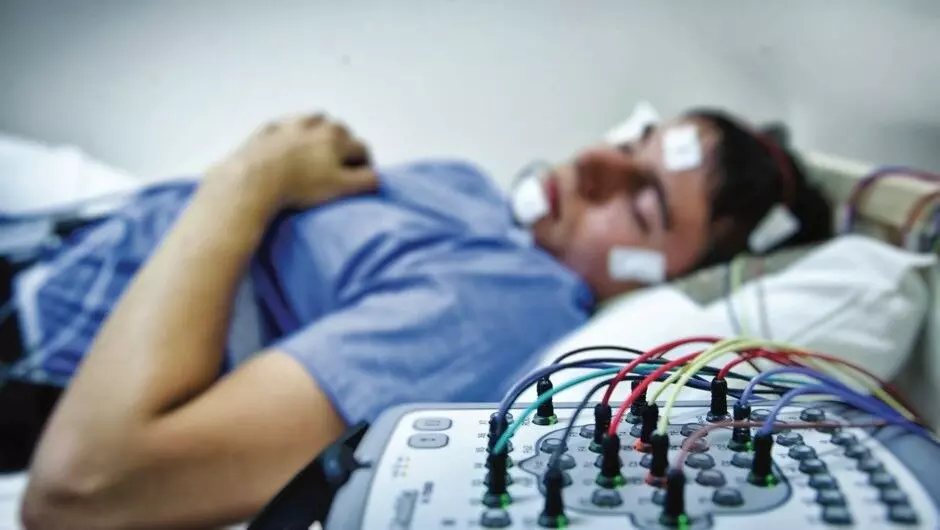- Home
- Medical news & Guidelines
- Anesthesiology
- Cardiology and CTVS
- Critical Care
- Dentistry
- Dermatology
- Diabetes and Endocrinology
- ENT
- Gastroenterology
- Medicine
- Nephrology
- Neurology
- Obstretics-Gynaecology
- Oncology
- Ophthalmology
- Orthopaedics
- Pediatrics-Neonatology
- Psychiatry
- Pulmonology
- Radiology
- Surgery
- Urology
- Laboratory Medicine
- Diet
- Nursing
- Paramedical
- Physiotherapy
- Health news
- Fact Check
- Bone Health Fact Check
- Brain Health Fact Check
- Cancer Related Fact Check
- Child Care Fact Check
- Dental and oral health fact check
- Diabetes and metabolic health fact check
- Diet and Nutrition Fact Check
- Eye and ENT Care Fact Check
- Fitness fact check
- Gut health fact check
- Heart health fact check
- Kidney health fact check
- Medical education fact check
- Men's health fact check
- Respiratory fact check
- Skin and hair care fact check
- Vaccine and Immunization fact check
- Women's health fact check
- AYUSH
- State News
- Andaman and Nicobar Islands
- Andhra Pradesh
- Arunachal Pradesh
- Assam
- Bihar
- Chandigarh
- Chattisgarh
- Dadra and Nagar Haveli
- Daman and Diu
- Delhi
- Goa
- Gujarat
- Haryana
- Himachal Pradesh
- Jammu & Kashmir
- Jharkhand
- Karnataka
- Kerala
- Ladakh
- Lakshadweep
- Madhya Pradesh
- Maharashtra
- Manipur
- Meghalaya
- Mizoram
- Nagaland
- Odisha
- Puducherry
- Punjab
- Rajasthan
- Sikkim
- Tamil Nadu
- Telangana
- Tripura
- Uttar Pradesh
- Uttrakhand
- West Bengal
- Medical Education
- Industry
Spirituality may prevent anxiety and depression among young adults

A new study found that spiritual well-being was protective against depression in young people aged 10 to 24 years. However, negative religious coping was associated with greater depressive symptoms over time and personal importance of religion was not associated with depressive symptoms in this population. The study results were published in the journal BMC Psychiatry.
Throughout history, religion has played a pivotal role in influencing the psychological and moral development of young individuals. While religiosity and spirituality have been associated with positive mental health outcomes in adults, their impact on the formative years of adolescence and the underlying mechanisms remain less clear. There is also evidence to suggest that negative aspects of religiosity can be linked to adverse mental health outcomes. In a quest for deeper understanding, a systematic review and quality appraisal were conducted, guided by lived experience consultants, to analyze 45 longitudinal studies and 29 intervention studies from three electronic databases (Medline, PsycINFO, and Scopus). The primary focus was on the role of religiosity and spiritual involvement (both formal and informal) in preventing and managing depression and anxiety among young people aged 10 to 24 years.
- Most of the studies analyzed originated from high-income countries and were of low to moderate quality. Meta-analysis of high-quality longitudinal studies, comprising 25 studies assessed using the Joanna Briggs Institute critical appraisal tools, unveiled intriguing trends.
- Negative religious coping, defined as feeling abandoned by or blaming God, was marginally associated with increased depressive symptoms over time (Pearson's r = 0.09, 95% confidence interval (CI) -0.009, 0.188).
- In contrast, spiritual well-being emerged as a protective factor against depression (Pearson's r = -0.153, CI -0.187, -0.118), while the personal importance of religion did not exhibit a significant overall association with depressive symptoms (Pearson's r = -0.024, CI -0.053, 0.004).
- Interventions that incorporated religious and spiritual practices for the treatment of depression and anxiety in young individuals were generally effective, although the quality of these studies was typically rated as low.
- The diversity in study designs prevented a meta-analysis of the data.
- Of note, lived experience consultants who guided this research emphasized the centrality of spirituality and religious involvement in their lives. They expressed a deep appreciation for feeling watched over during challenging times.
While further research from low- and middle-income countries is required, particularly focusing on younger adolescents and anxiety disorders, this review offers valuable insights into how spirituality and religious involvement could be harnessed to develop innovative psychological interventions for depression and anxiety in young people. It highlights the potential of leveraging spiritual resources to enhance the mental well-being of the next generation.
Further reading: Aggarwal, S., Wright, J., Morgan, A. et al. Religiosity and spirituality in the prevention and management of depression and anxiety in young people: a systematic review and meta-analysis. BMC Psychiatry 23, 729 (2023). https://doi.org/10.1186/s12888-023-05091-2
M.B.B.S, M.D. Psychiatry
M.B.B.S, M.D. Psychiatry (Teerthanker Mahavir University, U.P.) Currently working as Senior Resident in Department of Psychiatry, Institute of Human Behaviour and Allied Sciences (IHBAS) Dilshad Garden, New Delhi. Actively involved in various research activities of the department.
Dr Kamal Kant Kohli-MBBS, DTCD- a chest specialist with more than 30 years of practice and a flair for writing clinical articles, Dr Kamal Kant Kohli joined Medical Dialogues as a Chief Editor of Medical News. Besides writing articles, as an editor, he proofreads and verifies all the medical content published on Medical Dialogues including those coming from journals, studies,medical conferences,guidelines etc. Email: drkohli@medicaldialogues.in. Contact no. 011-43720751




